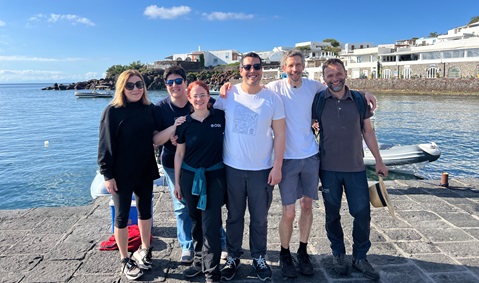Impact of natural CO2 leaks on marine ecosystems
Panarea Island, in the Aeolian Archipelago, served as a unique environmental setting for a pilot study on the impact of CO2 on calcifying phytoplankton and zooplankton, in an area characterized by the presence of natural CO2 seeps on the seafloor.

This research allowed scientists from ICTA-UAB and the National Institute of Oceanography and Experimental Geophysics (OGS) of Italy to directly address the impact of these CO₂ leaks and ocean acidification on the ecosystems, as well as the species-specific physiological responses, including the calcification processes.
Oceans absorb a large amount of atmospheric carbon dioxide, which helps mitigate climate change. In certain areas, such as volcanic zones near Sicily, natural CO₂ emissions from the seafloor can be observed. These leaks alter the water chemistry and may have consequences for marine life.
The study of biodiversity changes resulting from these leaks will deepen the understanding of the role of calcifying plankton in ocean carbon sequestration and will provide valuable insights into their influence on the biogeochemical carbon cycle. This first pilot study greatly benefited from the existing OGS marine laboratory facilities at Panarea.